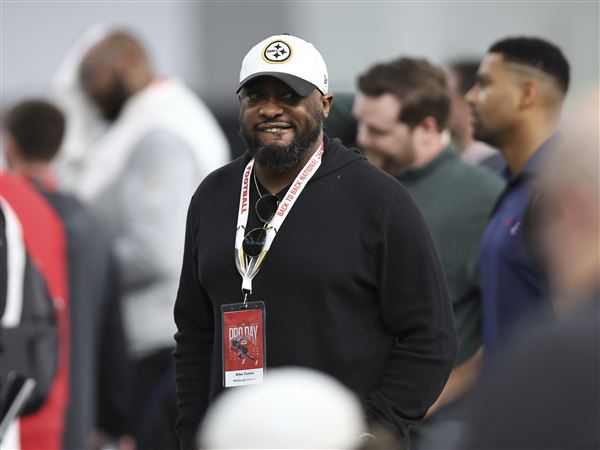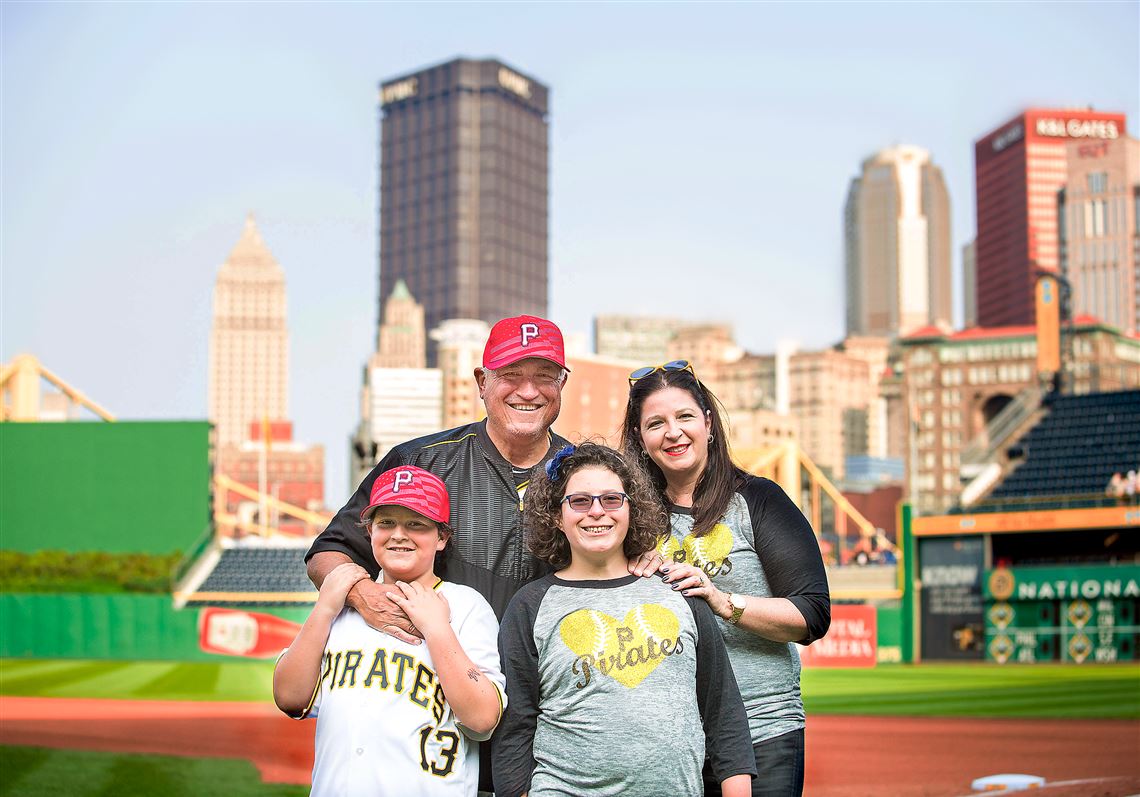BRADENTON, Fla. — As twilight set on Clint Hurdle’s first season as Colorado Rockies manager in 2002, he found himself searching for a sign, for answers to the questions that had begun Aug. 7 when his daughter, Madison Reilly, was born and something seemed amiss.
Why us? Why her? Why now?
For three weeks, Maddie lay in the neonatal intensive care unit at Children’s Hospital in Denver, and her mother, Karla, watched as doctors and nurses whirled around her first child and ran tests.
Maddie eventually was diagnosed with Prader-Willi syndrome, a rare and complex genetic disorder that can cause developmental and behavioral issues such as short stature, low muscle tone and an insatiable appetite that, if left unchecked, can lead to life-threatening obesity.
“It’s just not something you put your hand up and go to the front of the class for,” Karla said recently. “You want to have a baby. You want it to be healthy. But you never really plan on being in a new sorority you didn’t sign up for.”
This speed bump, Karla said, probably took her husband longer to get over than her. While she waited with their baby, Clint was at the ballpark every day, his mind miles away from baseball.
At the end of an early September road trip, the Rockies returned to Coors Field well after midnight. Before heading home, Clint rifled through a stack of mail in his office and found a letter that included an excerpt from a Morris West book titled “The Clowns of God.”
“I know what you are thinking,” West wrote. “You need a sign. What better one could I give than to make this little one whole and new? I could do it; but I will not. I am the Lord and not a conjuror. I gave this mite a gift I denied to all of you — eternal innocence. … I have chosen you. You have not chosen me. This little one is my sign to you. Treasure her!”
* * *
Clint Barmes, a former Rockies and Pirates shortstop, remembered Clint Hurdle breaking down in front of the team early in 2003 as he spoke about the previous year balancing Maddie and managing. For Barmes, then a rising prospect, it helped put things in perspective.
“From that moment on,” Barmes said, “I always had respect for him.”
Today, Hurdle is a national spokesperson for the Prader-Willi Syndrome Association and uses his platform as a major league manager to raise funds and awareness for the rare disorder. This weekend, he is host of a second annual “Hot Stove” PWSA benefit dinner in Bradenton.
After Maddie, now 13, was diagnosed, the Hurdles’ first call was to Janalee Heinemann, who was executive director of PWSA. She asked: What do you know so far? And where did you get the information?
The Hurdles, like most, had researched on the Internet. There they’d read of an incurable condition caused by a deletion or disruption in a region of chromosome 15. They’d read of growth hormones and strict diet and exercise plans. They’d read of parents padlocking their refrigerator door.
“Before parents call, they’re usually devastated,” Heinemann said this week. “I once had a dad call after he got on the Internet and say he felt like he should just take his child and go drive off a cliff.”
It’s the hunger “horror stories,” Heinemann said, that have defined PWS for decades.
“The kid in the garbage can. The 400-pound kid on death’s doorstep. That’s the media we used to get,” Heinemann said. “Not that we’ll never get that again, but it’s turning, and I attribute Clint to be the first person to put a positive spin on the syndrome in the media.
“We needed people to understand it and be more sympathetic than horrified.”
Lucy Krut, unit manager of the Center for Prader-Willi Syndrome at the Children’s Institute of Pittsburgh, said the future has gotten brighter for patients with PWS. With drug trials under way, doctors are focused on diagnosing the syndrome early, giving proper information and helping dispel myths early.
“We’re seeing older people coming through our program, which is good,” Krut said. “It means they’re living longer and healthier.”
It was during a Rockies series at PNC Park in 2006 that Clint first visited the Squirrel Hill institute’s world-class Prader-Willi program.
“There was no fanfare, no press,” recalled David Miles, president and CEO at the institute. “He just came over on his own and spent an afternoon with the kids. That was really something.”
The Prader-Willi program wasn’t the primary reason Clint took the job as Pirates manager in 2010, but from the start he said it was a big plus, another sign this was the right place for his family. They now partner with the institute on an annual “Wins for Kids” fundraising campaign.
* * *
In 2004, Clint and Karla were searching for the answer to another question: Should we try again?
They came from pretty big families — Karla has seven siblings, Clint two — and didn’t want Maddie to grow up like an only child. Ashley, Clint’s daughter from a previous marriage, is 17 years older.
“If something happened to us, who’s going to keep an eye on Maddie?” Clint said.
Maddie had been born after in-vitro fertilization, the egg donated by Karla’s sister. The rest of the eggs had been frozen and could no longer be tested for chromosome 15 defects. The couple was told there was a less than 1 percent chance they would have another Prader-Willi child.
“It’s less than 1 percent, but it’s still less than 1 percent,” Karla said.
They eventually decided it was worth a try.
Unlike with Maddie, when Karla was bedridden for the first five months of the pregnancy, the process was simpler the second time. Christian was born healthy in November 2004. He is 11 now and is often seen around the Pirates clubhouse wearing jerseys with his favorite players’ numbers.
“There’s another blessing,” Karla said. “There’s a reason God gave us him after Maddie. He’s such a great kid, and he has such a good soul. His heart is bigger than the world. Sometimes I’m like, ‘I needed that. I needed Christian to be Christian.’ ”
Most parents will say raising a child is a ton of work, but is more than worth it. That might go doubly so for parents of a special-needs child. Clint and Maddie are best friends, Karla said. They plan out “Maddie and Daddy” days together and love sitting down for weekend dates at Starbucks.
“God put her in our world because we were the chosen ones for her,” Karla said. “He thought this was the best place for Maddie to be.”
Stephen J. Nesbitt: snesbitt@post-gazette.com and on Twitter @stephenjnesbitt.
First Published: March 18, 2016, 3:59 p.m.
















